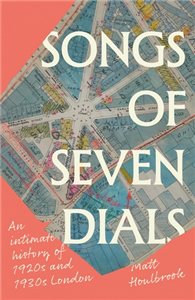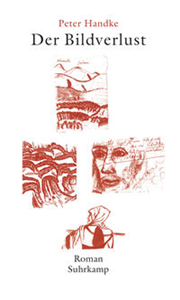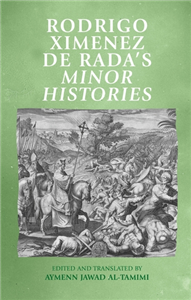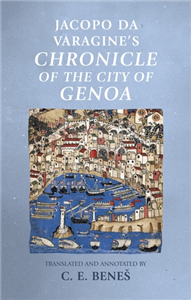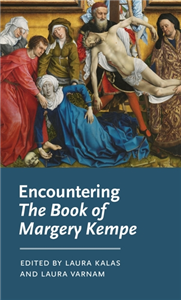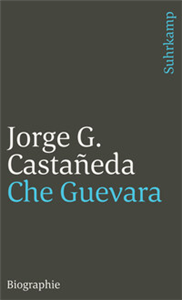Your Search Results
-
Promoted Content
-
Promoted ContentLifestyle, Sport & LeisureNovember 2025
Dirtbag dreams
A history of mountain, ultra and trail running
by Carl Morris
The first book to share the untold story of this unique sport, from its origins in the Victorian era to the present day. Over the past two decades, mountain, ultra and trail running has experienced a massive boom in participation, media attention and corporate consumerism. Once little more than an oddball recreation for mountain athletics romantics, the sport has become a mass activity in ways that were previously unimaginable. In Dirtbag dreams, Carl Morris offers the first complete account of mountain, ultra and trail running in North America and Britain. Revealing the sport's eccentric Victorian origins, he traces its development through 200 years of history, travelling from the Sierra Nevada and the English Lake District to the streets of London and New York. Packed with gripping races and colourful characters, Dirtbag dreams is the essential companion for anyone who wants to understand this unique endurance sport.
-
 Trusted Partner
Trusted Partner
-
 Trusted Partner
Trusted Partner
-
 Trusted Partner
June 2025
Trusted Partner
June 2025Windwalkers (1). Verborgene Flügel
Auftakt der neuen Tier-Fantasy-Reihe über eine Schule für geflügelte Gestaltwandler: Kinderbuch ab 10 Jahren aus der Welt von „Woodwalkers“ und „Seawalkers“ von Bestseller-Autorin Katja Brandis
by Katja Brandis, Claudia Carls
Eine neue Gestaltwandler-Schule öffnet ihre Türen. An der Redcliff High dreht sich alles um die Tiere der Lüfte! Die junge Wolfs-Wandlerin Sierra fiebert der Eröffnung der Redcliff High entgegen: das neue Gestaltwandler-Internat ihrer Eltern an der felsigen Küste Kaliforniens. Werden ihre Mitschüler nett sein? Und welche Tiergestalten stecken in ihnen? Mit dem Wildpferdmädchen Amy und der Tiger-Wandlerin Summer freundet sich Sierra schnell an. Doch eine Gruppe von Vogel-Wandlern, die sich Windwalker nennen, schließt alle aus, die nicht fliegen können. Dabei würde Sierra deren Anführer, den stolzen Steinadler Sky, gern besser kennenlernen. Parallel häufen sich in der Gegend rund um die Schule merkwürdige Vorfälle. Seltene Tiere verschwinden und anderswo werden geheimnisvolle Knochen entdeckt. Sierras Spürsinn ist geweckt. Kann sie herausfinden, wer hinter alldem steckt – und ob auch die Gestaltwandler an der Redcliff High in Gefahr sind? Doch da spürt Sierra plötzlich, dass in ihrem Innern eine neue Tiergestalt erwacht – und dieses Tier ist eindeutig kein Wolf … Hier kommt die neue große Tierwandler-Reihe von Katja Brandis, der Bestseller-Autorin von Woodwalkers und Seawalkers! Mitreißende Flugszenen, fantastische Wandler-Freundschaften und große Abenteuer warten auf Sierra und ihre Freunde (Bussard-Wandler Ricardo, Waschbärjunge Alex, Sittich-Wandlerin Kiki, Schneeeulenmädchen Avery und viele mehr). Mit Gastauftritten der beliebten Figuren aus Woodwalkers und Seawalkers. Einzigartig spannende Geschichten für alle Fans von Fantasy-Abenteuern ab 10 Jahren. Unvergleichlich illustriert von Claudia Carls. Mit farbig gestaltetem Vor- und Nachsatzpapier. Alle Windwalkers-Bände sind einzeln und unabhängig von den anderen Büchern der Reihe lesbar. Gedruckt auf Recycling-Umweltschutzpapier. Die Walkers-Bände erscheinen halbjährlich. Bisher erschienen sind: Woodwalkers (Staffel 1) Woodwalkers (1). Carags VerwandlungWoodwalkers (2). Gefährliche FreundschaftWoodwalkers (3). Hollys GeheimnisWoodwalkers (4). Fremde WildnisWoodwalkers (5). Feindliche SpurenWoodwalkers (6). Tag der Rache Woodwalkers – Die Rückkehr (Staffel 2) Woodwalkers – Die Rückkehr (1). Das Vermächtnis der WandlerWoodwalkers – Die Rückkehr (2). Herr der GestaltenWoodwalkers – Die Rückkehr (3). Das Grollen der LöwinWoodwalkers – Die Rückkehr (4). Der Club der FabeltiereWoodwalkers – Die Rückkehr (5). Rivalen im RevierWoodwalkers – Die Rückkehr (6). Zeit der Entscheidung Seawalkers Seawalkers (1). Gefährliche GestaltenSeawalkers (2). Rettung für ShariSeawalkers (3). Wilde WellenSeawalkers (4). Ein Riese des MeeresSeawalkers (5). Filmstars unter WasserSeawalkers (6). Im Visier der Python Special-Bände Woodwalkers & Friends. Katzige GefährtenWoodwalkers & Friends. Zwölf GeheimnisseWoodwalkers & Friends. Wilder Kater, weite WeltSeawalkers & Friends. Dreizehn WellenWoodwalkers/Seawalkers & Friends. Wilde Ferien Weitere Bände in Planung
-
 Trusted Partner
April 2018
Trusted Partner
April 2018Die Tyrannei des Schmetterlings
Roman
by Schätzing, Frank
Cornucopia of wishes? Or Pandora’s box? Luther Opoku is the sheriff of Sierra County, a sleepy gold mining region in the California Mountains, where he has to deal with petty crimes, the manufacture of illicit drugs and a constant lack of staff. Three hundred miles further west in the Silicon Valley, IT visionaries are competing for the creation of the first ultra-intelligent computer that is supposed to solve the major problems of humanity. When a biologist gets killed in mysterious circumstances in the Sierra County forests, Luther comes to realize that his natural idyll has long since become a testing ground for idiosyncratic experiments. The investigation is taking on surreal features and he soon begins to doubt his own sanity. Dead people come to life, time is dissolving – and that is only the beginning of an odyssey beyond the limits of the imaginable... In his new thriller Die Tyrannei des Schmetterlings (“The Tyranny of the Butterfly”), Frank Schätzing outlines the scenario of a technology that will radically change our lives, with the potential to dramatically improve it – or destroy us all: artificial intelligence.
-
 Trusted Partner
March 2008
Trusted Partner
March 2008Plastics Testing and Characterization
Industrial Applications
by Naranjo C., Alberto; Pilar Noriega E., Maria del; Osswald, Tim A.; Rojan, Alejandro; Sierra M., Juan Diego
-
 Trusted Partner
January 2026
Trusted Partner
January 2026Windwalkers (2). Helden der Lüfte
Tier-Fantasy über eine Schule für Vogel-Gestaltwandler: Kinderbuch ab 10 Jahren aus der Welt von „Woodwalkers“ und „Seawalkers“ von Bestseller-Autorin Katja Brandis
by Katja Brandis, Claudia Carls
Beste Unterhaltung für Fans von Tieren und Fantasy-Abenteuern: Große Gefahren und fedrige Freundschaften in der Wüste Kaliforniens. Für die junge Gestaltwandlerin Sierra gibt es keine bessere Schule als die Redcliff High in Kalifornien. Auf ihre Freunde, den Waschbärjungen Alex und die Tiger-Wandlerin Summer, kann Sierra immer zählen – ganz besonders, seit sie neben ihrer Wolfsgestalt auch noch ihre dritte Gestalt, einen Blauhäher, entdeckt hat. Am liebsten würde Sierra den Bussardjungen Ricardo, der ihr beim Fliegen lernen geholfen hat, überreden, ebenfalls auf die Redcliff High zu gehen. Doch ihm ist seine Freiheit in der Natur wichtiger. In den Ferien haben Sierra, Alex und Summer große Pläne. Gemeinsam mit den befreundeten Schülern von der Clearwater High geht es nach Hollywood! Kaum sind sie dort angekommen, wird den jungen Wandlern allerdings klar, dass in der Welt der Filmstars dunkle Machenschaften am Werk sind. Während die Stars im Luxus leben, wird in Kalifornien das Wasser knapp und eine Dürre bedroht das Revier von Ricardos Bussardfamilie. Einige Schauspieler halten außerdem Haustiere, die eigentlich in die Wildnis gehören. Sierra und ihre Freunde planen, die Tiere zu befreien, und eine Aktion gegen die Wasserverschwendung. Aber sie haben es mit mächtigen Gegenspielern zu tun und Alex scheint plötzlich etwas zu verbergen. Sowohl in Wolfs- als auch Vogelgestalt muss Sierra alles geben, um die Gefahren an Land und in der Luft zu meistern. In der neuen großen Tierwandler-Reihe von Katja Brandis, der Bestseller-Autorin von Woodwalkers und Seawalkers dreht sich alles um die Tiere der Lüfte! Mitreißende Flugszenen, fantastische Wandler-Freundschaften und große Abenteuer warten auf Sierra und ihre Freunde (Bussard-Wandler Ricardo, Waschbärjunge Alex, Sittich-Wandlerin Kiki, Schneeeulenmädchen Avery und viele mehr). Mit Gastauftritten der beliebten Figuren aus Woodwalkers und Seawalkers. Einzigartig spannende Geschichten für alle Fans von Fantasy-Abenteuern ab 10 Jahren. Unvergleichlich illustriert von Claudia Carls. Mit farbig gestaltetem Vor- und Nachsatzpapier. Alle Windwalkers-Bände sind einzeln und unabhängig von den anderen Büchern der Reihe lesbar. Die Walkers-Bände erscheinen halbjährlich. Bisher erschienen sind: Windwalkers Windwalkers (1). Verborgene Flügel Woodwalkers (Staffel 1) Woodwalkers (1). Carags VerwandlungWoodwalkers (2). Gefährliche FreundschaftWoodwalkers (3). Hollys GeheimnisWoodwalkers (4). Fremde WildnisWoodwalkers (5). Feindliche SpurenWoodwalkers (6). Tag der Rache Woodwalkers – Die Rückkehr (Staffel 2) Woodwalkers – Die Rückkehr (1). Das Vermächtnis der WandlerWoodwalkers – Die Rückkehr (2). Herr der GestaltenWoodwalkers – Die Rückkehr (3). Das Grollen der LöwinWoodwalkers – Die Rückkehr (4). Der Club der FabeltiereWoodwalkers – Die Rückkehr (5). Rivalen im RevierWoodwalkers – Die Rückkehr (6). Zeit der Entscheidung Seawalkers Seawalkers (1). Gefährliche GestaltenSeawalkers (2). Rettung für ShariSeawalkers (3). Wilde WellenSeawalkers (4). Ein Riese des MeeresSeawalkers (5). Filmstars unter WasserSeawalkers (6). Im Visier der Python Special-Bände Woodwalkers & Friends. Katzige GefährtenWoodwalkers & Friends. Zwölf GeheimnisseWoodwalkers & Friends. Wilder Kater, weite WeltSeawalkers & Friends. Dreizehn WellenWoodwalkers/Seawalkers & Friends. Wilde Ferien Weitere Bände sind in Planung Gedruckt auf Umweltpapier und zertifiziert mit dem „Blauen Engel“.Alles über die Serie und viele Extras zum Buch auf katja-brandis.de
-
 Trusted Partner
Humanities & Social SciencesOctober 2025
Trusted Partner
Humanities & Social SciencesOctober 2025Songs of Seven Dials
An intimate history of 1920s and 1930s London
by Matt Houlbrook
The untold story of a remarkable neighbourhood and the battle to define modern London. Throughout the 1920s and 1930s, Seven Dials was one of London's most diverse neighbourhoods, home to migrant and working-class communities, bohemian clubs and cafes. But business leaders and city planners had other ideas. Beginning with a rancorous libel trial of 1927, in which a Sierra Leonean café owner and his wife confronted the racist newspaper that destroyed their business, Matt Houlbrook reveals the surprising history of this remarkable neighbourhood. He traces how tensions that simmered on the streets and finally exploded in court betrayed the politics of urban 'improvement' and the 'colour bar'. Underlying the trial was a series of troubling questions that would define Britain in the twentieth century - about race, class and the boundaries of belonging, gentrification and the kind of city London would become. Imaginative, powerful and deeply moving, Songs of Seven Dials is an important new history of London in the 1920s and 1930s.
-
 Trusted Partner
Trusted Partner
-
 Trusted Partner
Humanities & Social SciencesJanuary 2026
Trusted Partner
Humanities & Social SciencesJanuary 2026Rodrigo Ximenez de Rada’s Minor Histories
by Aymenn Al-Tamimi
This work provides the first complete English translation of works by Toledan archbishop Rodrigo Ximénez de Rada (1170-1247 CE), whose 'Minor Histories' are sequels to his larger 'Gothic History' and thus round off his grand history of Spain project that he began at the request of King Ferdinand III. The 'Minor Histories' include Rodrigo's 'History of the Arabs' that can be considered the first surviving Western monograph focused on Arab and Islamic history and thus occupies a unique position in the medieval Latin corpus of writings. In addition to the translation, this book provides a thorough and accessible introduction to the life and works of Rodrigo, making sense of the context in which he wrote and his historical method. The translations are thoroughly annotated including cross-references to other Latin and Arabic sources for comparison.
-
 Trusted Partner
Humanities & Social SciencesJuly 2022
Trusted Partner
Humanities & Social SciencesJuly 2022Jacopo da Varagine's Chronicle of the city of Genoa
by C. E. Beneš
This book offers the first English translation of the Chronicle of the city of Genoa by the thirteenth-century Dominican Jacopo da Varagine, an author best known for his monumental book of saints' lives, the Golden legend. Jacopo's Chronicle presents a coherent vision of Genoa's place in history, the cosmos and Creation as written by the city's own archbishop - mixing eyewitness accounts with scholarly research about the city's origins and didactic reflections on the proper conduct of public and private life. Accompanied by an extensive introduction, this complete translation provides a unique perspective on a dynamic medieval city-state from one of its most important officials, broadening the available literature in English on medieval Italian urban life.
-
 Trusted Partner
Humanities & Social SciencesNovember 2019
Trusted Partner
Humanities & Social SciencesNovember 2019Jacopo da Varagine's Chronicle of the city of Genoa
by C. E. Beneš, Rosemary Horrox
This book offers the first English translation of the Chronicle of the city of Genoa by the thirteenth-century Dominican Jacopo da Varagine, an author best known for his monumental book of saints' lives, the Golden legend. Jacopo's Chronicle presents a coherent vision of Genoa's place in history, the cosmos and Creation as written by the city's own archbishop - mixing eyewitness accounts with scholarly research about the city's origins and didactic reflections on the proper conduct of public and private life. Accompanied by an extensive introduction, this complete translation provides a unique perspective on a dynamic medieval city-state from one of its most important officials, broadening the available literature in English on medieval Italian urban life.
-
 Trusted Partner
April 2021
Trusted Partner
April 2021Abschiede
by Juan Carlos Onetti, Wilhelm Muster
Ein etwa vierzigjähriger Mann, ehemaliger Basketballspieler, erscheint in einem Ort in der Sierra, in dem sich Tuberkulosekranke niederlassen und der zur Saison von Vergnügungssüchtigen aufgesucht wird. Er hält sich abseits, scheint sein Kranksein störrisch zu negieren. Einzig die Briefe, die regelmäßig kommen, offensichtlich von zwei verschiedenen Frauen, bringen ihn in die kleine Poststelle, dessen Inhaber die Geschichte erzählt. Als erst die eine, später die andere Frau im Ort erscheinen, richtet sich die skandalbereite Neugier des Erzählers und der Öffentlichkeit auf sie.So einfach das Geschehen in Abschiede zunächst erscheint, ist es von Anfang an von einer Ambivalenz grundiert, die der Erzähler der Geschichte gleichzeitig unterdrückt und hervorbringt.
-
 Trusted Partner
February 2009
Trusted Partner
February 2009Mexiko
Ein Reisebegleiter
by Andreas Drouve
Andreas Drouve führt durch eine der abwechslungsreichsten Landschaften Lateinamerikas: vom mexikanischen Hochland mit der Hauptstadt geht es ins mondäne Acapulco, zu legendären Stätten der Azteken und Maya, auf die Halbinsel Yucatán, in die Regionen Chiapas und Baja California sowie in entlegene Regenwälder. Wir folgen dabei den Spuren bekannter Persönlichkeiten: Alexander von Humboldt, Frida Kahlo und Diego Rivera, Anna Seghers, James A. Michener, Octavio Paz, Carlos Fuentes, Graham Greene. Wir nehmen die Fährte der Entdecker und Eroberer auf, lassen uns erschüttern von den Berichten des Hernán Cortés und Bartolomé de Las Casas, begleiten Egon Erwin Kisch bei seinen "Entdeckungen in Mexiko" und heben B. Travens "Schatz der Sierra Madre".
-
 Trusted Partner
Trusted Partner
-
 Trusted Partner
Literature & Literary StudiesNovember 2021
Trusted Partner
Literature & Literary StudiesNovember 2021Encountering The Book of Margery Kempe
by Laura Kalas, Laura Varnam, David Matthews, Anke Bernau, James Paz
This innovative critical volume brings the study of Margery Kempe into the twenty-first century. Structured around four categories of 'encounter' - textual, internal, external and performative - the volume offers a capacious exploration of The Book of Margery Kempe, characterised by multiple complementary and dissonant approaches. It employs a multiplicity of scholarly and critical lenses, including the intertextual history of medieval women's literary culture, medical humanities, history of science, digital humanities, literary criticism, oral history, the global Middle Ages, archival research and creative re-imagining. Revealing several new discoveries about Margery Kempe and her Book in its global contexts, and offering multiple ways of reading the Book in the modern world, it will be an essential companion for years to come.
-
 Trusted Partner
Trusted Partner
-
 Trusted Partner
October 1998
Trusted Partner
October 1998Che Guevara
Biographie
by Jorge G. Castañeda, Christiane Barckhausen-Canale, Sven Dörper, Ursula Gräfe, Udo Rennert
Ernesto Guevara de la Serna, genannt „Che"", war bereits vor seinem Tod am 8. Oktober 1967 zur Legende geworden, zum Mythos, der Lebensgefühl und Ideologie einer ganzen Generation weltweit maßgeblich geprägt hat. Sein Porträt, auf Postern und T-Shirts gedruckt, war überall zu finden, ob in Versammlungsräumen von Studenten, auf den Straßen oder in den Zimmern der Jugendlichen. Die Biographie von Jorge G. Castañeda beschreibt umfassend und detailliert Che Guevaras Leben, von den bürgerlichen Anfängen in Argentinien bis zum Tod des Guerrillero in Bolivien. Castañedas Buch ist zugleich eine kenntnisreiche Darstellung der Zeitgeschichte Kubas und Lateinamerikas von Beginn der Aufstände in der Sierra Escambray bis zum bolivianischen Abenteuer. Castañeda untersucht die internationalen, weltpolitischen Verflechtungen der kubanischen Revolution und zeigt, wie die diplomatischen und militärischen Aktionen ihrer Protagonisten unser Jahrhundert veränderten. Das größte Symbol der Rebellion der sechziger Jahre steht noch heute, am Ende des Jahrtausends, auch in den Augen der nachfolgenden Jugend für Erneuerung, für die Möglichkeit eines „neuen Menschen“. Als einer der besten Kenner der Zeitgeschichte hat Jorge G. Castañeda zahlreiche unbekannte Quellen auswerten können, private und öffentliche Dokumente aus Lateinamerika und den USA, insbesondere die lange Zeit geheimgehaltenen Dokumente der CIA und des FBI, er hat aktuelle Berichte verarbeitet, eine Vielzahl von persönlichen Interviews mit noch lebenden Freunden und Mitkämpfern geführt. Drei Jahre hat Castañeda sich den Recherchen und der Niederschrift des Buches gewidmet, ist mehrmals nach Kuba gereist, nach Argentinien, Frankreich, Bolivien, nach Moskau, in die USA.
-
 Trusted Partner
May 2022
Trusted Partner
May 2022Hundert Augen
Roman
by Samanta Schweblin, Marianne Gareis
Sie haben Häuser in Hongkong infiltriert, Geschäfte in Vancouver, die Straßen Sierra Leones, Marktplätze in Oaxaca, Schulen in Tel Aviv, Schlafzimmer in Indiana. Sie sind überall. Sie sind hier. Sie sind wir. Sie sind keine Haustiere, Geister oder Roboter. Sie sind wirkliche Menschen. Aber wie kann sich jemand, der in Berlin ist, frei durch ein Wohnzimmer in Sydney bewegen? Und wie kann jemand in Bangkok mit deinen Kindern in Buenos Aires frühstücken, ohne dass du davon weißt? Besonders wenn diese Person komplett anonym ist, unbekannt und unauffindbar? Samanta Schweblin erzählt vom Vertrauen in Fremde, von wunderbaren Begegnungen und unerwarteter Liebe. Und davon, wie all diese Schönheiten in unsäglichen Terror umschlagen können. Samanta Schweblin erzählt eine Geschichte, die bereits stattfindet. Eine Geschichte, die uns bekannt vorkommt und beunruhigt. Weil sie unsere Welt ist, in der wir leben. Wir wissen es nur noch nicht … Hundert Augen ist ein visionärer Roman über unsere vernetzte Gegenwart und über den Zusammenprall von Humanität und Horror.














